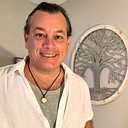Tristan Harris Q&A on Wisdom 2.0
It’s been about 6 months since the release of The Social Dilemma. After the release of the film it reached #1 and was seen all over the world. The discussion continued after the films release, as seen during Tristan Harris interviews and podcasts. Here’s some highlights during a Q&A with Wisdom 2.0
While Tristan and director Jeff Orlowski knew one another, Jeff didn’t know the degree to many of the concerns Tristan had regarding the rise of social media use. Tristan believes that Jeff was able to tell the documentary from a standpoint in which he can tell the broader story to the audience.
It wasn’t clear to them in the beginning that they’d get Netflix to distribute the film. Couple this with the film being released during the Coronavirus pandemic, which lead to more people subscribing to the streaming network. The viewership of the documentary exceeded expectations. Tristan is enthusiastic about the global attention that has been allowed with the release of the documentary during the pandemic. As a collective, people can simultaneously being to understand the underpinnings of what we’ve been experiencing with social media.
— —
Soren, the interview reminds Tristan of when they first met. He refers to observing Tristan’s messages around the attention economy, as well as Tristan’s own personal work. Tristan states how important those times were for him and how his personal work grew.
Tristan states, “When I first started working on this in 2012/2013, I didn’t have a mediation practice, I’d never gone to a meditation retreat, I hadn’t done all sorts of workshops… Doing the inner work, becoming aware.” He reflected about how he met his cofounding partner of the Center for Humane Technology, Randy Fernando, at a Wisdom 2.0 retreat.
He goes on to say, “I look at the phone, and I look at social media — in a Byron Katie sense if you will — as kind of a false belief factory. That every time you scroll, it is creating yet another warped perception of reality. And it’s really by tuning into these technologies as reality constructing interfaces — and everything that you can diagnose as being harmful about, you know, fake news, or psychological issues of technology on the outside — you can actually do inside of your own mind.”
Tristan brings up some really great points about what our minds do when we are flooded with so much stimulation of thoughts. Do our minds pick up on those negative bits, even when there are more positive ones? Yes, it does. It’s imperative that we’re mindful of this.
— —
Soren chimes in and jokes about the possibility of a follow-up documentary. Goodness, I believe there needs to be multiple follow-up documentaries on this. Let’s hope they happen. Sure, it may not come through as another full-on, widely distributed documentary, but the discussions must continue. Fortunately to some extent this is the purpose long-form podcasting allows.
Two main things that are important to look at are: creating technology and using technology. Both are vitally important. Yes, users of technology need to be more mindful, but those designing the technology have to be more mindful too (as has been highlighted in the documentary and other talks by Tristan).
Soren mentions, “traumatized human beings create traumatized things.” Which leads us to some deep considerations on this topic. How do we create technology from a more whole and less traumatized place? How do we use technology use technology in a wiser better way?
____
Tristan like this train of thought and agrees there’s many directions to take the discussion. He states, “Every way that we’re not aware of how our mind is not working and running the show is a place where we are not freely choosing. If you’re being hijacked by outrage or anger, and I’m acting from a place of certainty because of that — it feels like I’m making a free choice, but the fact that I’m not aware of anger impacting the way I’m acting is a dimension that freedom and will have been reduced into a kind of reaction.
Tristan continues, “If we can’t make sense of those distinctions within ourselves, then we can’t make technology that distinguishes between a wise and thoughtful conscious choice and a reaction.
